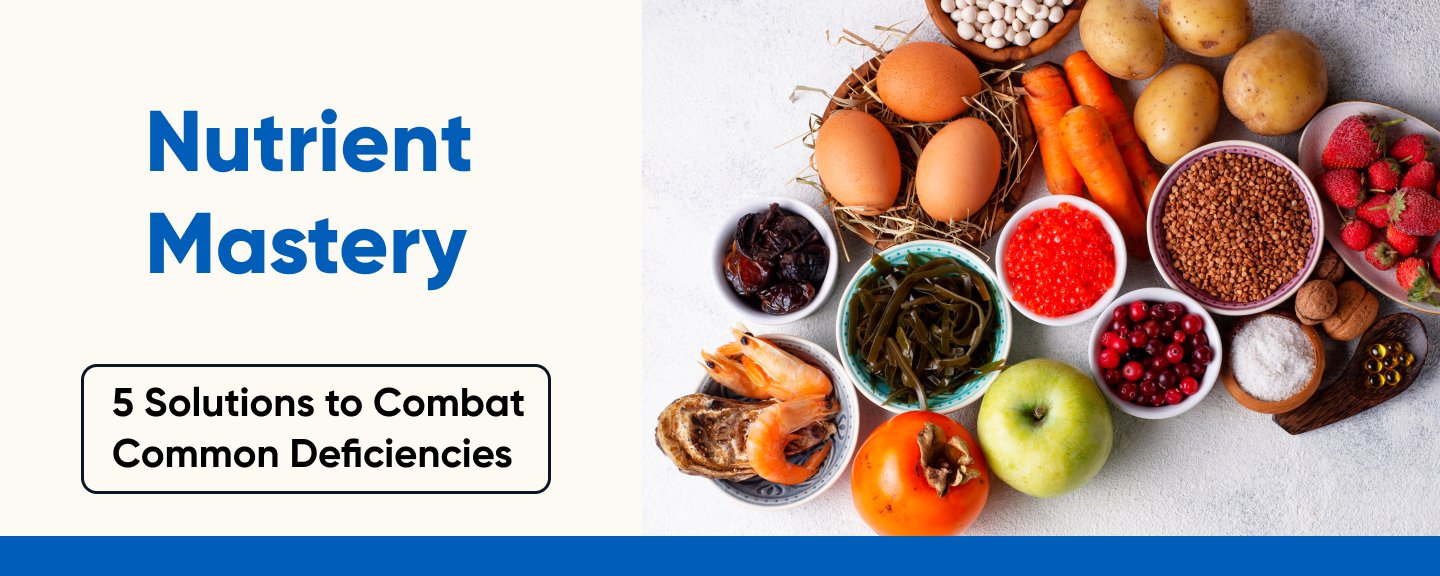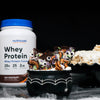Overcoming Nutrient Deficiencies: A Guide to Optimal Health

In the hustle and bustle of modern life, it's all too easy to overlook the importance of proper nutrition. Yet, ensuring that we get an adequate intake of essential nutrients is crucial for maintaining overall health and well-being. Unfortunately, many people fall short when it comes to meeting their nutritional needs, leading to deficiencies that can have far-reaching effects on health.
In this blog post, we'll explore some of the most common nutrient deficiencies and discuss strategies for overcoming them to promote optimal health.
- Vitamin D
Vitamin D plays a critical role in bone health, immune function, and mood regulation. Yet, many people are deficient in this vital nutrient, particularly those who live in regions with limited sunlight or spend most of their time indoors. To combat vitamin D deficiency, aim to spend time outdoors in the sunlight each day, and consider incorporating vitamin D-rich foods such as fatty fish, fortified dairy products, and eggs into your diet. In some cases, supplementation may be necessary, especially during the winter months.
- Vitamin B12
Vitamin B12 is essential for nerve function, red blood cell production, and DNA synthesis. Deficiency in this nutrient is particularly common among vegetarians and vegans, as vitamin B12 is primarily found in animal products. To ensure an adequate intake of vitamin B12, include fortified foods such as plant-based milk alternatives, breakfast cereals, and nutritional yeast in your diet. If you're concerned about your B12 levels, speak with your healthcare provider about supplementation options.
- Iron
Iron is necessary for the formation of hemoglobin, which carries oxygen in the blood, as well as for energy production and immune function. Iron deficiency is widespread, especially among women of childbearing age and individuals following vegetarian or vegan diets. To boost your iron intake, incorporate iron-rich foods such as lean meats, poultry, fish, beans, lentils, spinach, and fortified cereals into your meals. Consuming vitamin C-rich foods alongside iron-rich foods can also enhance iron absorption.
- Magnesium
Magnesium plays a role in over 300 enzymatic reactions in the body, including energy production, muscle function, and bone health. Despite its importance, many people do not get enough magnesium from their diets. To increase your magnesium intake, include magnesium-rich foods such as nuts, seeds, whole grains, leafy green vegetables, and legumes in your diet. Additionally, consider taking a magnesium supplement if you're unable to meet your needs through diet alone.
- 5. Omega-3 Fatty Acids
Omega-3 fatty acids are essential fats that are important for heart health, brain function, and inflammation regulation. While omega-3s are found in fatty fish such as salmon, mackerel, and sardines, many people do not consume enough of these foods regularly. To ensure an adequate intake of omega-3s, consider incorporating plant-based sources such as flaxseeds, chia seeds, walnuts, and hemp seeds into your diet. Fish oil supplements can also be a convenient option for increasing omega-3 intake.
In conclusion, addressing common nutrient deficiencies is essential for maintaining optimal health and well-being. By prioritizing a balanced diet rich in nutrient-dense foods and considering supplementation when necessary, you can ensure that your body receives the essential nutrients it needs to thrive. Remember to consult with a healthcare professional before making any significant changes to your diet or supplement regimen, especially if you have underlying health conditions or concerns.














